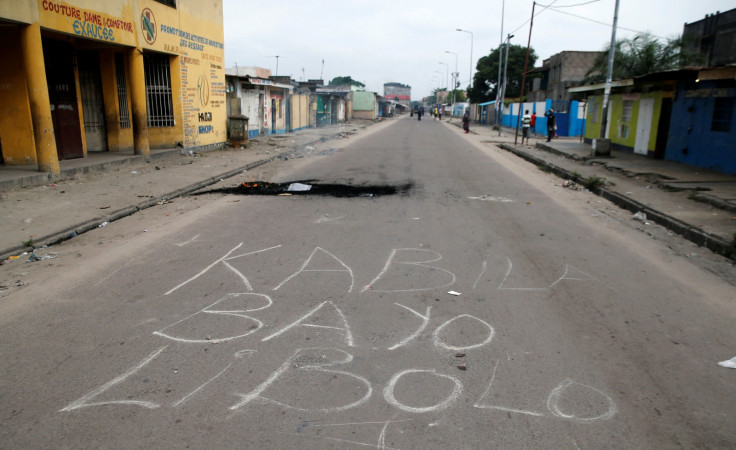Activist Fred Bauma warns there is no political will from either side to hold elections in the DRC
The prominent LUCHA member tells IBTimes UK how the UK, US and EU can help deliver democracy in the DRC.
There is no political will from either the government or the main opposition bloc to hold presidential elections in the Democratic Republic of Congo (DRC) this year, leading pro-democracy activist Fred Bauma has declared.
Joseph Kabila has already served two full presidential terms as permitted by the Congolese constitution. Elections were due to be held in November 2016, but were never organised.
Kabila's mandate expired in December 2016 and angry protests calling on him to leave office were met with teargas, gunfire and death.
As the DRC teetered on the brink, the government struck a deal with the main opposition bloc on 31 December, easing the crisis triggered by Kabila's refusal to hand over the presidency.
Under the agreement, Kabila is barred from standing for a third term and a vote must be held before the end of this year.
As per the terms of the accord, Kabila would stay in power and the opposition would select a new prime minister of an interim government that would arrange elections by the end of 2017. Kabila would then be required to relinquish power.
Despite the agreement to prevent the DRC from imploding, a struggle has emerged over who the next prime minister will be in a power-sharing government. The deal struck on 31 December is yet to be implemented and there are no signs of an election in sight.
IBTimes UK spoke exclusively to Bauma, from La Lutte pour le Changement (LUCHA), or Struggle for Change youth movement.

Bauma was arrested in March 2015 as "part of a growing government crackdown on those speaking out against efforts to extend President Joseph Kabila's stay in power," according to Human Rights Watch (HRW). The political prisoner was freed in August 2016, sparking scenes of jubilation.
"What was the question last year?" Bauma asked rhetorically. "It was the same question. From January to December – is it technically possible to organise elections? It was was possible last year. It's still possible this year," he added.
But, Bauma warned, both the government and the political opposition are in "glissement", the French word for "sliding" used by the Congolese to characterise Kabila's attempts to remain in power.
"I think both are in glissement, that is clear," said Bauma. "The opposition and the majority are off in a glissement process. There is no legitimacy in that glissement although all of them are in that process.
"The people have shown that they don't want any more of this regime even if it is ruling with the opposition. What we need is not more glissement," the icon synonymous with the fight for freedom said.
The DRC is a vast country with huge potential in agriculture, mining, hydropower and tourism to name just a few areas. But, Bauma warned, elections are the only way to put the Congolese people on the course to prosperity.
"The only process that can bring us to that is elections. It's not a group of people who talk together and decide who will be who, it's about our power as a citizen to choose that," said Bauma.
What can the international community do to help?
"The argument that has been advanced by the government is lack of money and logistic [difficulty]," said Bauma. In February the DRC government claimed it lacked the $1.8bn (£1.5bn) that was necessary to hold elections.
"The UK and the EU and the US has the possibility to fund the electoral process and to make sure there are logistical means that can help CENI [the DRC's electoral commission] organise elections," said Bauma.
He also highlighted further targeted sanctions as another possibility to keep the pressure on Kinshasa. Earlier this week, the EU criticised the political stagnation in the central African nation and warned of another round of sanctions if the political blockade persists.
What is the reality for political activists in the DRC?
"Two weeks ago our [LUCHA] member was arrested in Kinshasa. They were just asking for a clean town," said Bauma.
"There's still one of LUCHA's activists in Goma [eastern DRC] who was convicted two days ago because he asked President Kabila to step down.
"Three weeks ago we were organising a press conference when the police came and surrounded the place," said Bauma. "And so on."
"Nothing has changed since this agreement."
© Copyright IBTimes 2025. All rights reserved.






















